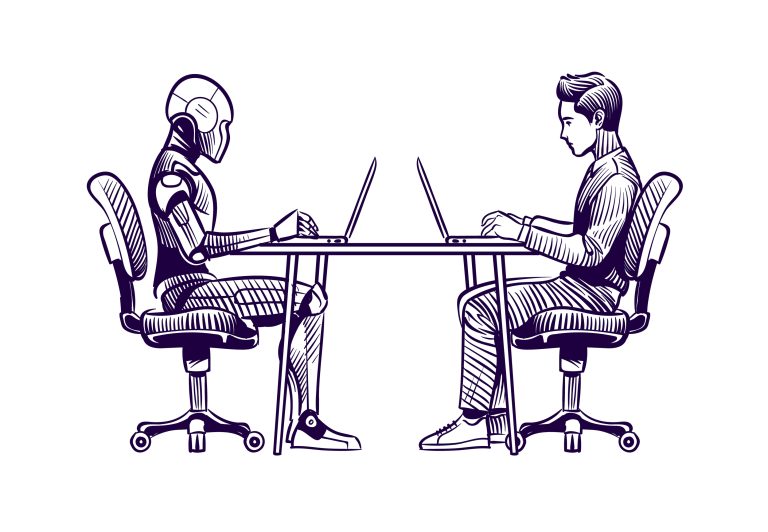
The use of artificial intelligence (AI) in the workplace has increased greatly in the last few years. From the introduction of the open AI chatbot ChatGPT in 2022 to a focus on AI automation in a variety of sectors, this trend is becoming a facet of daily life, especially in the workplace.
With these changes, both opportunities and fears arise. This is why the Flint & Genesee Chamber invited Marouane Kessentini, Myron and Margaret Winegarden Professor and associate dean for Research and Graduate Studies for the College of Innovation and Technology at the University of Michigan-Flint, to speak at its April Chamber Luncheon.
Recently, the editors at Inside Business sat down with Kessentini to discuss AI in the workplace.
IB: Can you explain what AI looks like in the modern workplace?
Marouane Kessentini: In recent years, we’ve experienced what is called the AI revolution. So many things that were done manually are being done semi-automatically with the help of AI – which is great but, at the same time, has revolutionized the way we run business today. Think about applying for a mortgage. A few years ago, you had to manually enter information with experts and would then hear back about your mortgage in a few weeks. Now, you can get approved in seconds with AI.
IB: What are some of the hesitations you see surrounding AI?
MK: First, with the increase of automation, people sometimes are afraid of trusting machines to do the work. We’ve seen a lot of progress with ChatGPT and other tools that can replace humans in many aspects and increase automation and profits. But many people think about the ethics side.
Another implication is that most workers now must think about how to equip themselves with skills beyond basic duties that can be automated which brings up the concept of lifelong learning. People will need to learn new concepts so that they can keep their jobs and work better with automated tools.
IB: What opportunities do you see happening with AI?
MK: If you look at AI, a great example to give is 30 years ago, there was a discussion around if we could use calculators in high school. Nowadays, we let kids use calculators because there is a time and place to use this type of automated tool to help solve more complex problems. At the beginning of the AI revolution, there was a lot of resistance due to data leakage issues. That happened with Samsung. They had allowed their software team to use AI to write code, and what happened is that ChatGPT was learning and there was data leakage. So now, most companies reflect and think about how to use AI tools in a secure way. The future of AI is personalization. You’ll see personalized versions of ChatGPT that are security compliant.
IB: In your circles, what has been the topics of discussion around AI?
MK: The main things we are discussing are how we can use AI ethically and how we can build the next generation of AI that can deal with complex problems. We have tools available to do basics, so how we integrate new data in an ethical way is the biggest challenge. We discuss regulations and policies and how that changes over time and affects what data we can use and cannot use. When these policies change, how can we automatically re-engineer systems to make them adapt to the changes?
IB: What do you think people need to know about AI?
MK: Individuals should continue to learn about how we are integrating AI in the workplace. This is how companies will continue to compete, and it is how people can stay ahead and keep their jobs in the future. Current predictions say 25% of jobs will be replaced by AI in the next five years, so I encourage people to continue to learn – not necessarily go back to school but get certificates from online resources or local universities.
Learn more about AI in the workplace on Wednesday, April 10 at the Flint & Genesee Chamber Luncheon. Register today at FlintandGeneseeChamber.org.
